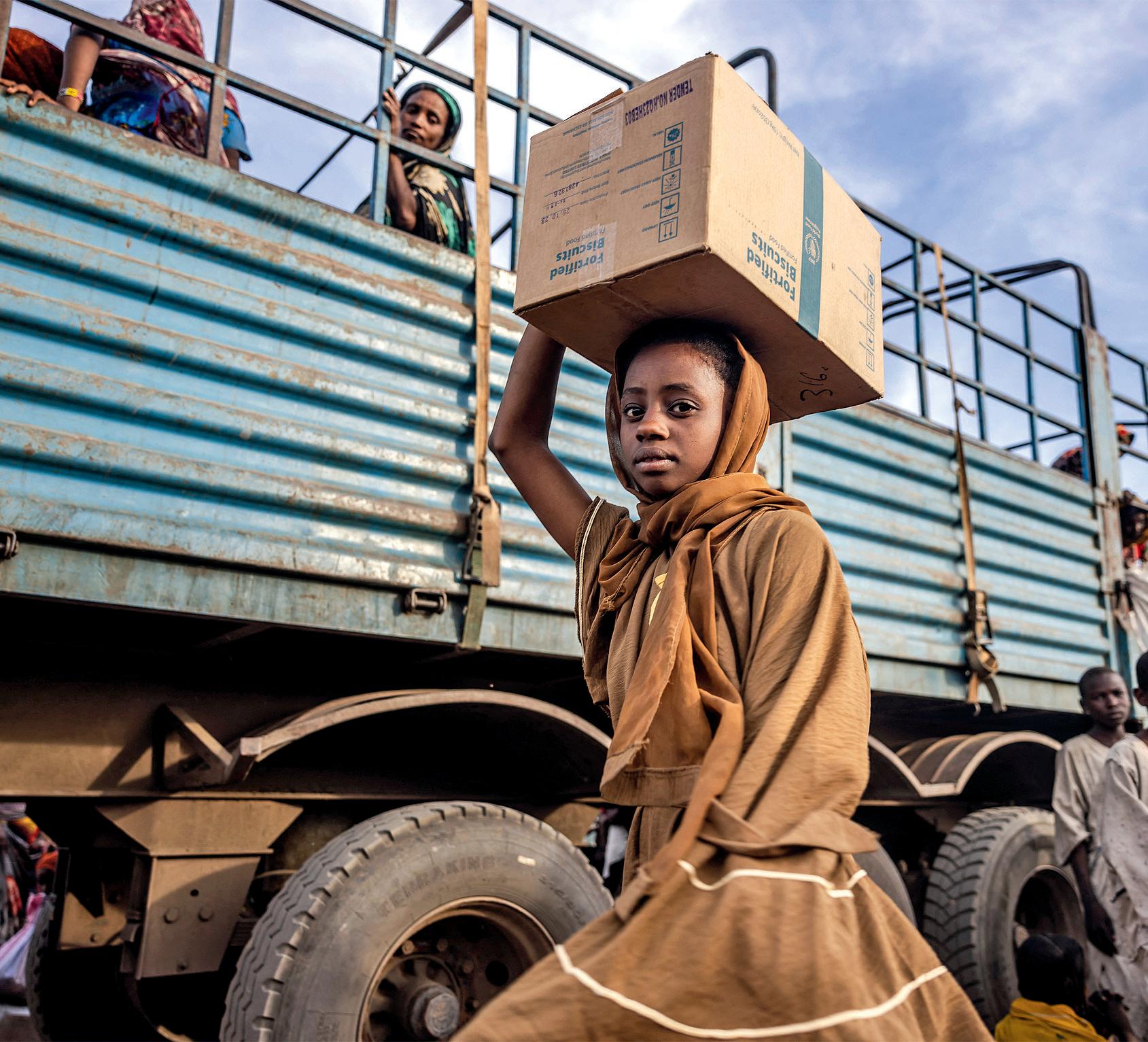Denemek ALTIN - Özgür
'I imagine how I used to walk in peace'
The Guardian Weekly
|July 19, 2024
More than a year since the civil war started, 7 million people have fled their homes and had their lives uprooted

Hajer Sulaiman, a 32-year-old communications specialist, was living in the Sudanese capital, Khartoum, when a power struggle that had been simmering for months between the regular army and the paramilitary Rapid Support Forces (RSF) burst into the open on 15 April last year.
"My mother was telling me she wanted to head to the market that morning," Sulaiman said. "We could hear loud explosions, but we thought it was to do with protesters, not that the entire country had slipped into a civil war. It was just too overwhelming to process." She didn't expect the fighting to last a long time, believing the country's generals would be hauled around the table to thrash out a deal. But the sound of mortars, fighter jets and gunfire did not cease, and a few days later the family decided they had to leave.
Sulaiman, who now lives in Port Sudan, a small city on the Red Sea coast, is among millions of displaced Sudanese people whose lives have been upended by a brutal and seemingly intractable conflict that has killed at least 14,000 civilians, according to a conservative estimate by the nonprofit war monitor ACLED.
"I only took my laptop and phone because I thought we'd be back in a few weeks," Sulaiman said. "That's what hurts the most," she added, "not being able to say goodbye and now it has been over a year." According to the UN refugee agency, UNHCR, there are about 10 million internally displaced people in Sudan, making it the country with "the largest internally displaced population ever reported".
Bu hikaye The Guardian Weekly dergisinin July 19, 2024 baskısından alınmıştır.
Binlerce özenle seçilmiş premium hikayeye ve 9.000'den fazla dergi ve gazeteye erişmek için Magzter GOLD'a abone olun.
Zaten abone misiniz? Oturum aç
The Guardian Weekly'den DAHA FAZLA HİKAYE

The Guardian Weekly
ASSAULT ON THE SMITHSONIAN
Donald Trump has vowed to kill off 'woke' culture in his second term, and a major institution a few blocks from the White House is in his sights
16 mins
January 16, 2026

The Guardian Weekly
'Add blood, forced smile' How Grok's nudification AI tool went viral
A trend for the chatbot to alter pictures to show women in bikinis spiralled into hundreds of thousands of requests to create fake sexualised images, horrifying those targeted
5 mins
January 16, 2026
The Guardian Weekly
Two horrifying truths have been disclosed by a lying president
For a serial liar, Donald Trump can be bracingly honest. We've known about the mendacity for years - consider the 30,573 documented falsehoods from the president's first term, culminating in the big lie, his claim to have won the 2020 election - but the examples of bracing candour are fresher. Last week both began and ended with the US president speaking the shocking truth.
4 mins
January 16, 2026

The Guardian Weekly
Jude Law's Putin sent from Russia with love
Is a new film portrayal of the autocrat as a James Bond-like strategist merely swallowing Kremlin myths?
3 mins
January 16, 2026
The Guardian Weekly
The city of noodles fights for the crown
The road to ramen paradise ends in the unlikeliest of places. At Men Endo, located in a suburban street, next to a school and a low-rise apartment block, bowls of noodles disappear in a flurry of slurps, gulps and hurried but heartfelt exchanges of appreciation between customers and chefs.
3 mins
January 16, 2026
The Guardian Weekly
Rhetoric risks repeating Warsaw Pact mistakes
Donald Trump's echoing of Russia's talking points in its war against Ukraine has long been a cause for alarm and dismay in the west.
2 mins
January 16, 2026

The Guardian Weekly
Europe's options What can the EU do to counter Trump's designs on Greenland?
Diplomacy and Arctic security European governments, led by Denmark's ambassador to the US, Jesper Møller Sørensen, and Greenland's envoy, Jacob Isbosethsen, have been lobbying US lawmakers to talk Trump out of his territorial ambitions for the island.
2 mins
January 16, 2026
The Guardian Weekly
China first? Carney looks to mend broken ties with Beijing
As trade war with Washington takes its toll, Canada’s PM seeks to restore fractured relationship with China
3 mins
January 16, 2026

The Guardian Weekly
As the bombs fell, my family planted hope in a garden in Gaza
My 12-year-old brother Mazen ran into the kitchen, shouting that the aubergines were sprouting. He held up the tiny green shoots, his hands shaking. My older brother Mohammed and I rushed outside, laughing despite the fear that had become our constant companion.
2 mins
January 16, 2026

The Guardian Weekly
Can Havana's bond with Venezuela survive Trump?
On Havana's Fifth Avenue, where the trees and lawns remain groomed even as the rest of Cuba wilts, a billboard outside the Venezuelan embassy reads: “Hasta Siempre Comandante” (Until For Ever, Commander) next to a vast picture of a smiling Hugo Chávez.
3 mins
January 16, 2026
Listen
Translate
Change font size
